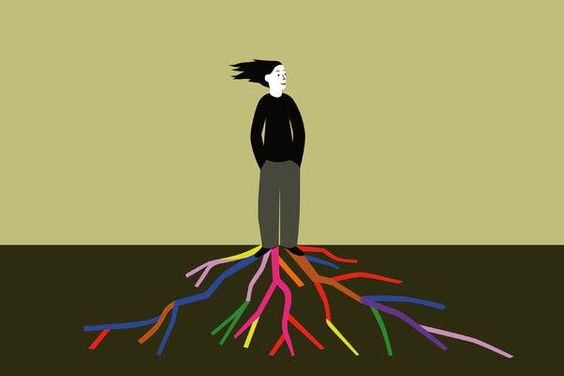Relationships are the backbone of our lives; they shape us, challenge us, and help us grow into the people we’re meant to be. Whether it’s with our partners, family, friends, or colleagues, the quality of our relationships significantly impacts our well-being. In this article, we’ll delve into the art of building resilient relationships that stand the test of time, adversity, and change.
Understanding the Foundation
At the core of resilient relationships lies a solid foundation of trust, empathy, and effective communication. Think of it as a sturdy house that can weather any storm. When trust is the bedrock, it provides the safety and security needed to explore the depths of our emotions and vulnerabilities.
Listening with Empathy
Imagine a scenario where your friend has had a rough day at work, and they turn to you for comfort. An empathetic listener would lend a compassionate ear, validating their feelings and offering support without judgment. By understanding their perspective and emotions, you create a deeper connection.
The Power of Vulnerability
Let’s take a look at John and Sarah’s relationship. John was a stoic man who rarely expressed his feelings, while Sarah was an open book. One day, Sarah decided to share her innermost fears and dreams with John. His walls began to crumble, and he reciprocated, revealing his vulnerabilities. This intimate moment strengthened their bond, proving that vulnerability can be a catalyst for growth.
Weathering the Storms Together
Life isn’t always smooth sailing, and relationships face challenges too. Resilient relationships are like well-anchored ships that navigate storms together. For instance, consider Mark and Lisa, a married couple facing financial difficulties. Instead of pointing fingers, they sat down, discussed their options, and came up with a plan. Through teamwork, they not only resolved their financial issues but also grew stronger as a couple.
Learning from Conflict
Conflict is an inevitable part of any relationship. The key is to see it as an opportunity for growth and not a threat to the bond you share. Take the case of two colleagues, Jack and Emily, who clashed over a project approach. Instead of avoiding the issue, they engaged in open dialogue, respecting each other’s perspectives. By doing so, they not only found a middle ground but also developed a deeper respect for each other’s ideas.
The Dance of Give and Take
Resilient relationships are a dance of give and take. Sometimes, it’s about compromising on the restaurant choice, and other times, it’s about supporting your partner’s career change. It’s not always equal, but it’s balanced. Peter and Rachel’s friendship exemplifies this. Peter was an introvert, and Rachel was extroverted. They found harmony by alternating between going out and staying in, ensuring both felt comfortable.
Cultivating Emotional Intelligence
Emotional intelligence is the ability to recognize, understand, and manage emotions – both our own and others’. It plays a pivotal role in building resilient relationships. For instance, Emily and her teenage daughter, Lily, often clashed due to the generation gap. Emily took a step back, putting herself in Lily’s shoes, and realized the importance of actively listening. This led to a shift in their dynamic, fostering understanding and empathy.
Embracing Change and Growth
Change is the only constant in life, and relationships are no exception. Resilient relationships embrace change and adapt to it together. When Jake was diagnosed with a chronic illness, his partner, Mia, stood by his side, offering unwavering support. Their love not only endured the challenges but evolved, strengthening their connection.
The Magic of Appreciation
Imagine coming home to a partner who acknowledges your efforts and appreciates you. It’s like sunshine on a cloudy day. Expressing gratitude fosters positivity and reinforces the emotional bond. For instance, when Lisa prepared a surprise dinner for Mark to celebrate his promotion, it made him feel valued and loved.
Finding Meaningful Rituals
Rituals add depth and meaning to relationships. It could be as simple as a weekly movie night or a monthly adventure. These shared experiences create cherished memories, making the relationship more resilient. Jennifer and David, a long-married couple, always had a Saturday morning hike together. This ritual not only kept them physically active but also provided a space to connect and share their thoughts.
Embodying Forgiveness
We’re all human, and we make mistakes. Resilient relationships practice forgiveness, understanding that nobody is perfect. Sarah forgave her friend Jane for a hurtful comment, and their friendship became even stronger. Forgiveness releases the burden of grudges, allowing room for growth and healing.
The Power of Self-Reflection
To build resilient relationships, we must also look within. Self-reflection helps us recognize our own patterns, triggers, and communication styles. Alex realized his fear of vulnerability was affecting his romantic relationships. Through self-reflection and therapy, he worked on opening up, leading to more intimate connections.
Celebrating Individuality
In resilient relationships, both individuals are encouraged to grow and explore their passions. It’s about supporting each other’s individual journeys. When Emma decided to pursue painting alongside her corporate job, her partner, Michael, cheered her on. This support not only deepened their bond but also allowed each of them to thrive.
The Continuous Journey
Building resilient relationships is an ongoing journey that requires effort, patience, and understanding. It’s not always easy, but it’s undoubtedly worth it. When we nurture our connections and foster understanding, we create a web of support that can withstand the trials of life.



Leave a Comment